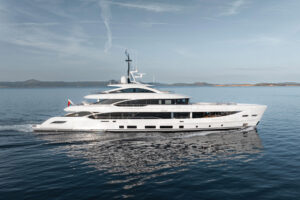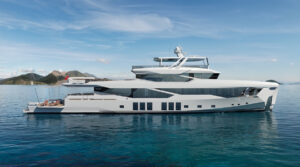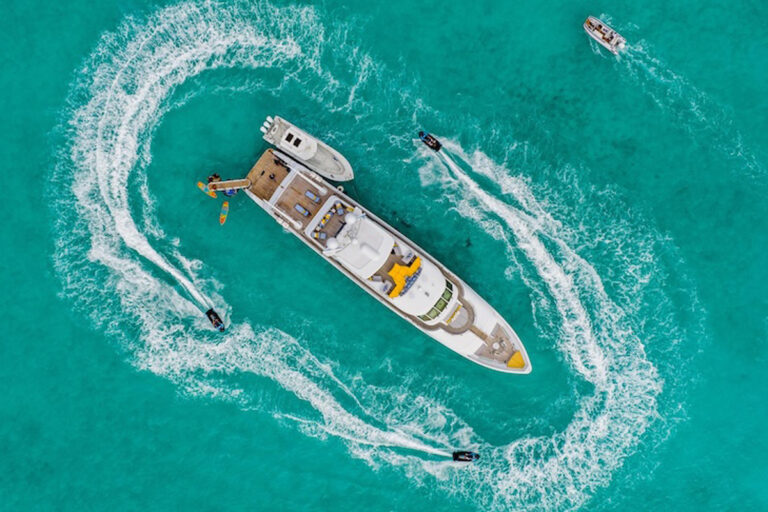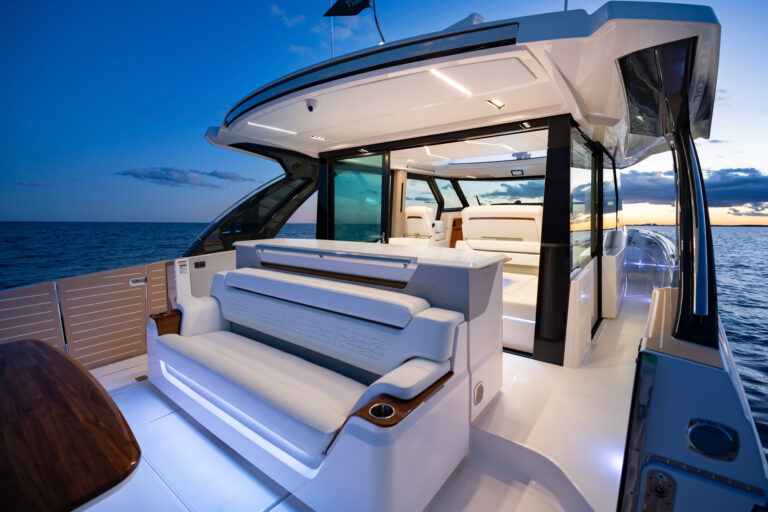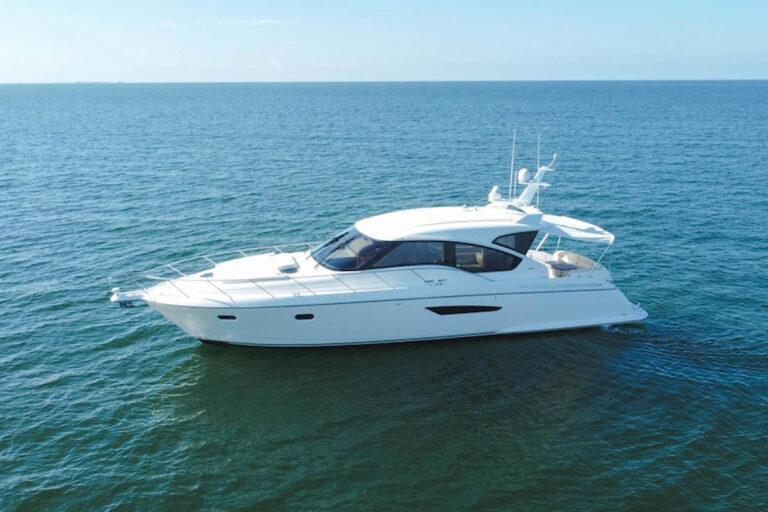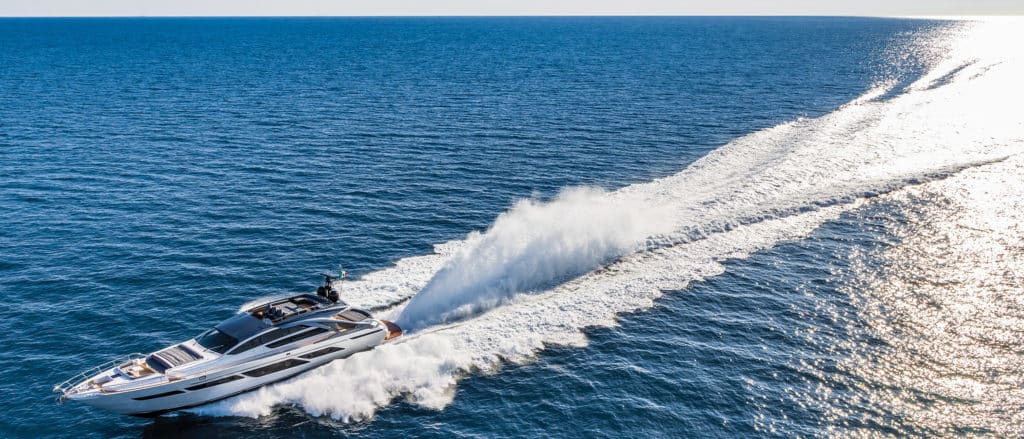
The Pershings are the ultimate lush rush.
They are 40-plus-knot performance delivered with rooster-tail ostentation. They’re for blasting over to the best spot for lunch ahead of the pack. For going a bit farther, faster, to reach the best diving. For being the last yacht to leave the bay on a Sunday evening and still getting back to the dock first.
And the Italian builder’s 9x is pure Pershing. A pair of 2,638 hp 16V 2000 M96L MTUs hooked up to Top System surface drives deliver massive punch and a plume that can top 30 feet. Pershing says the maximum speed for this 92-footer is 42 knots, although during our test off La Spezia, Italy, we managed a knot more at something approaching half-load: 11 people, one-third fuel, one-half fresh water, and empty black and gray tanks, but a full garage. Conditions were close to perfect, with still air and flat-calm seas that we couldn’t wait to tear up. The only imperfection was an outside air temperature of 52 degrees Fahrenheit, which, with a backdrop of snow-capped Apennine Mountains, probably seemed more brisk than our reality. Certainly if you were outside when she was wound up, you noticed the wind chill, but thankfully her interior was a constant 66 degrees F, so I can vouch for the heating system, although I would rather not make a habit of it. I’m British and prefer yachting weather to be like my tea: hot.
Handling is as fun as I can imagine with 165,000 pounds or so of yacht. She feels every bit as precise as smaller Pershing models, running on a hull developed from Pershing’s 92, which in turn evolved from the 90 and 88.
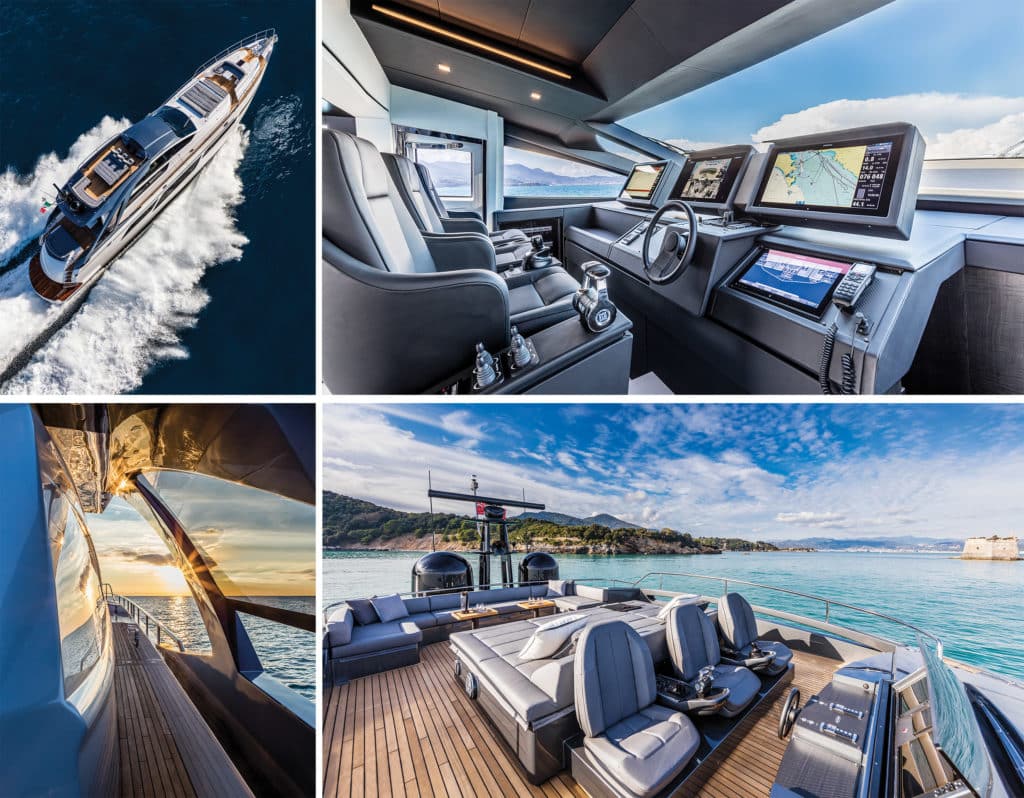
Must-have options, based on my time aboard, include twin Seakeeper 9 gyrostabilizers for comfort at anchor, and a Xenta electro-hydraulic joystick control system for close-quarters maneuvering. At speeds faster than 8 knots, skippers can cruise the yacht using the joystick, a trick that I found immensely satisfying in the big seats down below as well as on the flybridge. Altering course required nothing more than a slight twist of my thumb and index finger.
At a 38-knot cruise, our 9x’s motors were turning 2,250 rpm and burning 110 gallons per engine, which, allowing for a 10 percent reserve, equates to a range of almost 370 nautical miles. At full chat, those diesels are sucking up 2.2 gallons per minute, or 6.3 gallons per nautical mile. Setting the throttles to bumble, which I deem to be around 750 rpm, sees the 9x settle into a 10-knot cruise for around 900 nautical miles.
Pershing interiors are crisp, reflecting youthful tastes. Our test yacht, Najati, fused a satin-gloss ebony and whitened oak sole, along with furnishings from Poltrona Frau and cushions by Fendi Casa. I was convinced that some of the cupboards were sheathed in snakeskin or exotic printed leather, until I realized the material was a silvery fabric. It’s a nice vibe.
Owners can choose a three- or four-stateroom layout. Najati has the master amidships, the VIP forward with a diagonal berth, and two guest staterooms in between (their berths can convert from twins to doubles). The companionway belowdecks is off-center, which means the starboard stateroom is a little beamier than the one to port.
The chaise lounge in the owners’ stateroom is the biggest touch point on the yacht. I tried it with enthusiasm, but actually, as is, it isn’t quite right for my 6-foot-6-inch frame. I found it more comfortable when I was sitting the wrong way around, with my back to the bulkhead, although I’m quite sure Pershing’s engineers would sort that one out for me in a flash if I asked.
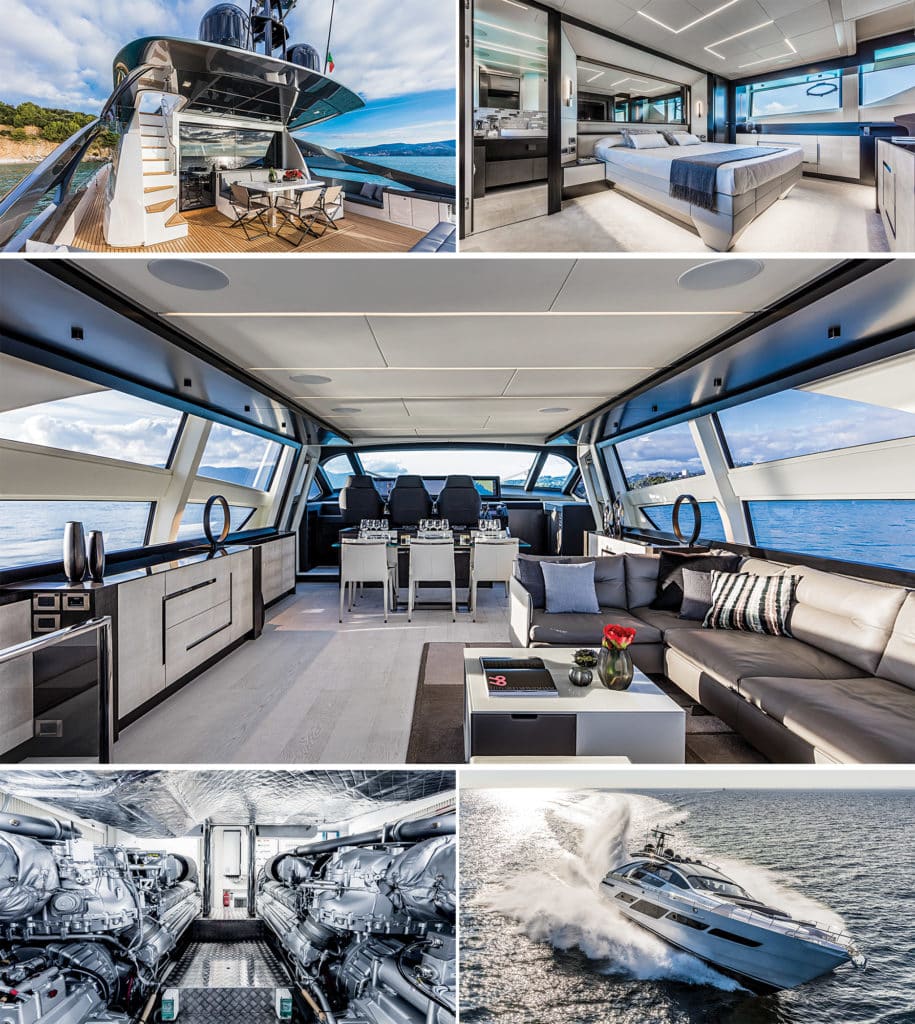
The yacht’s galley doubling as a crew mess is also on this deck, reached by a dogleg staircase from the portside corner of the main salon.
A garage under the stern sun pad is big enough for a tender and a toy. Najati has the largest Williams RIB that fits, a Turbojet 385, as well as a Sea-Doo.
Following our sea trial, Najati faced a long voyage south as a large piece of deck cargo, on a transport ship bound for Africa. Her owner was taking delivery in Angola, where mining and oil resources have created one of the continent’s fastest-growing economies — growing almost as fast as the Pershing 9x flies.
Coming Soon: Super Pershings
The first Pershing 140 is under construction at the Ferretti Group’s facilities in Ancona, Italy. As with all Pershings since 1985, Fulvio de Simoni designed this new flagship, which has a snub nose. The 140 is also the first all-aluminum Pershing, the first to have a raised pilothouse, and the longest hull to date, besting her next-closest sistership by 25 feet. Features will include a beach club with three fold-down sides, and a covered hot tub on the foredeck.
Fabrication began in early 2017, and Hull No. 1 is expected to launch by September, when she’ll be delivered to Asia as Chorus Line. She has the more powerful of two propulsion options: four MTU 16V 2000 M96Ls and four Marine Jet Power water jets, with a projected maximum speed around 40 knots.
Pershing recently released renderings of an even bigger trideck design, the 170, which would combine aluminum and carbon fiber in its construction. The builder says that a few clients are interested, and that a second Pershing 140 is scheduled for delivery in late 2019.


